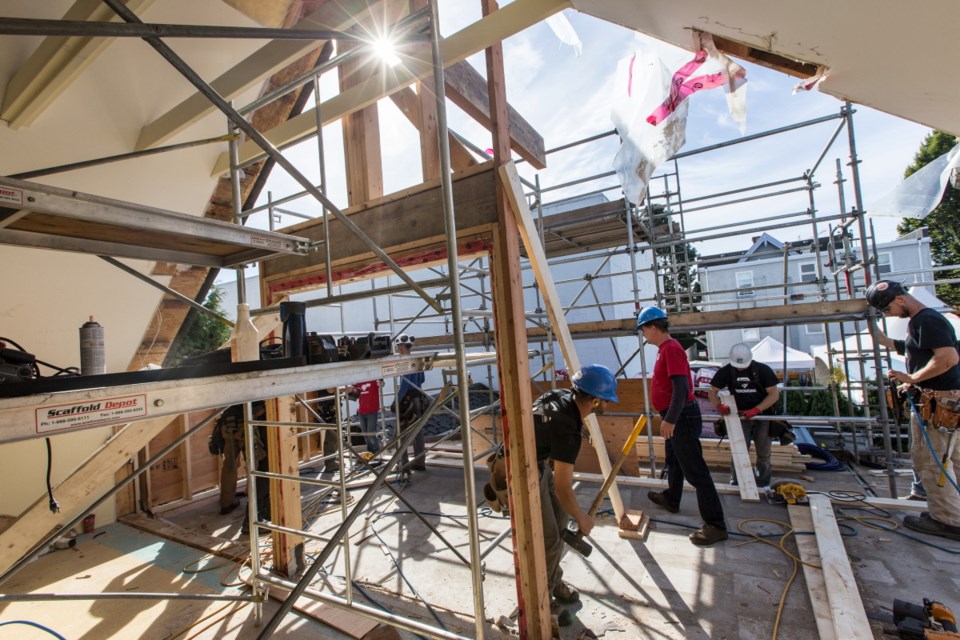There were no end of local heroes — armed with hammers, nail guns and paintbrushes — at Victoria’s Anawim House homeless shelter and drop-in centre on Saturday.
More than 200 volunteers are donating their time to HeroWork this weekend, renovating and expanding the blue house at Vancouver Street and Caledonia Avenue.
The renovation, which will add about 800 square feet, includes a new nurses room, a new bike repair workshop and expanded space for art therapy and computer use.
But the most important change will be more private and discreet counselling spaces, said Terry Edison-Brown, executive director of Anawim House.
“Counselling is one of the biggest things we do here,” Edison-Brown said. “We find out what are their issues, why are they are on the street, and what are the services we can put them in contact with.
“We need to do that one-on-one, and the way our house is situated right now, we can’t do that.”
Anawim House has been operating since 1987 and was expanded in 1994. The shelter currently houses seven men as residents and serves 20 to 50 people a day through its drop-in centre, Edison-Brown said.
Looking at the beehive of activity Saturday, with the home’s attic ripped open and ready for an extension, he could only say: “Wow, it blows me away.”
Anawim co-ordinator Laurie Meyers, who was organizing lunch for more than 100 people on Saturday, said it meant a lot to staff and residents that people cared enough to give up their weekend.
Edison-Brown, pointing to a woman sweeping the pathways, said while tradespeople were lending their heavily sought-after skills during a busy construction boom, others were happy to volunteer to do the “grunt work.”
“At 6:30 a.m. there were 10 people, at 7:30 a.m. there were 20 and at 10:30 a.m. we were jam-packed with people wanting to give what they can back to society,” he said.
HeroWork is a non-profit charity that organizes tradespeople, companies, volunteers and community leaders to do what it calls “a modern-day barn raising” — renovating a non-profit charity property in a short amount of time.
HeroWork founder Paul Latour spearheaded the charity in 2010 when he wanted to help his friend by doing a garden renovation.
“I started HeroWork with 20 friends and a pizza party to help my friend with MS,” Latour said Saturday at Anawim House.
HeroWork has worked on several properties since then, including the renovation of Casa Maria emergency housing for refugees, a major renovation of the Mustard Seed Food Bank, a total revamp of an apartment building donated to Threshold Housing Society, and a project for the Citizens Counselling Centre and B.C. Schizophrenia Society.
The value of HeroWork’s projects has ranged from $100,000 to more than $600,000.
For more information on HeroWork, go to herowork.com.



